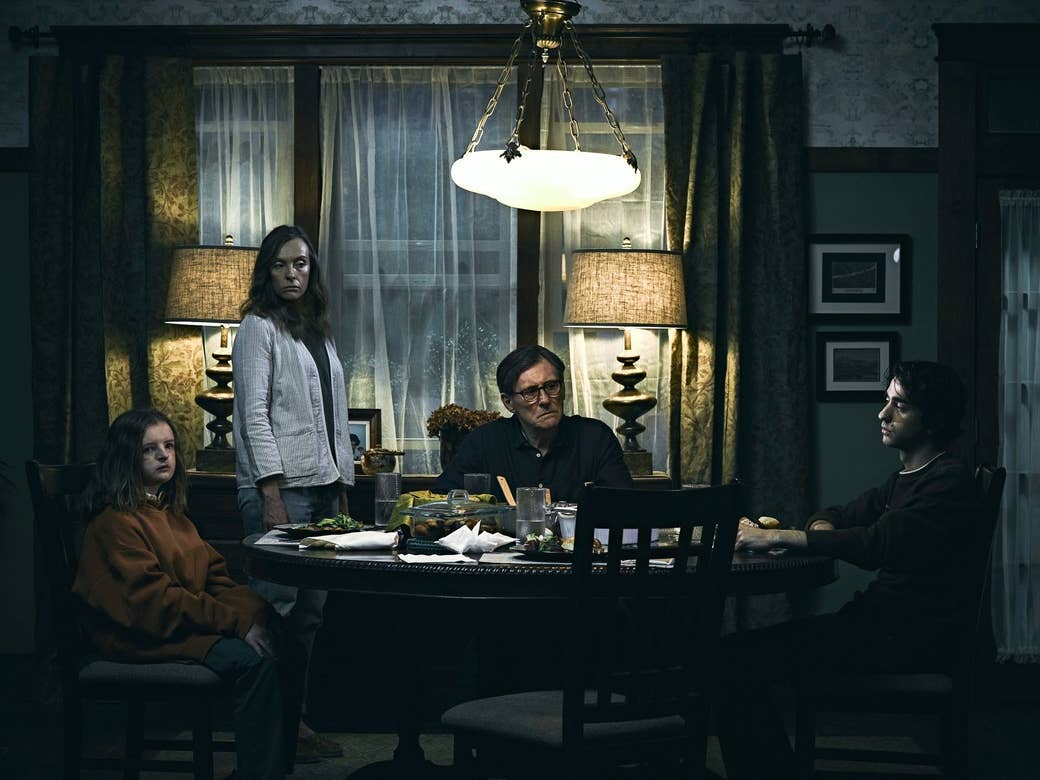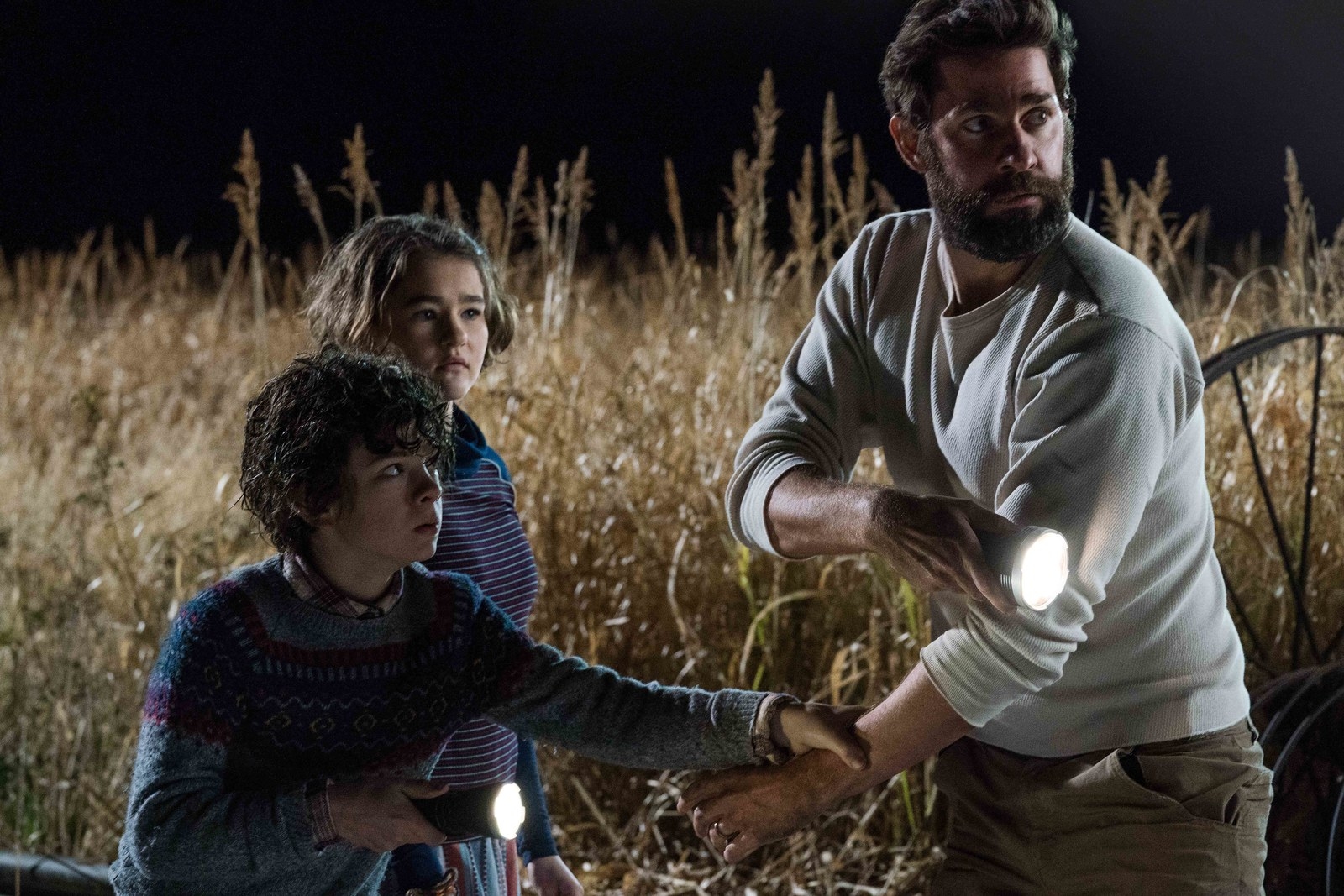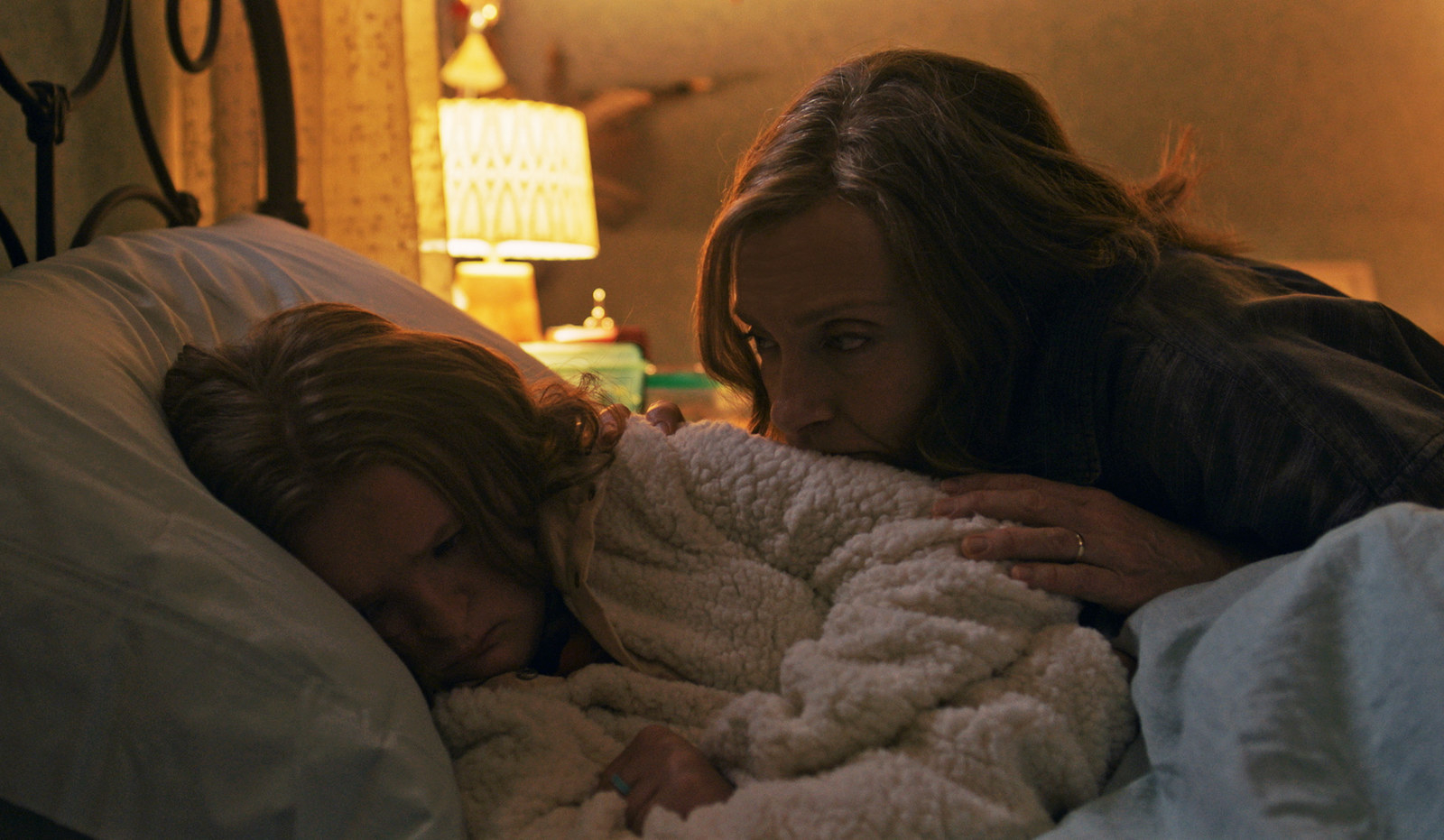
When A.O. Scott and Wesley Morris were tasked with explaining why 2017 had been declared "The Year of Horror" in the New York Times Magazine, they wrote that "Horror movies probably don’t need the world to be horrifying to be good. But when things are bad, the genre has a way of telling you they could be worse." It was a thesis for a year that saw, among other things, the swearing in of President Trump, the deadliest mass shooting in modern US history, wave after wave of the terrible revelations that fueled the #MeToo movement, and an overall feeling that something had broken, maybe irreparably, in the way we talk to one another. It was also the year in which Get Out was nominated for four Oscars and It set box office records. They both happened to be movies about the dark things lurking within surface-perfect (and majority white) communities — from the body-snatching practices behind a smiley WASP gathering to the monster rising up to claim child victims in an idyllic-looking small town.
As we approach the midway point of 2018, horror hasn't just continued to feel like the genre of the moment; it's seeping into everything else. Phantasmagoric touches permeated Season 2 of Atlanta, and the heady sci-fi feature Annihilation included imagery (and a creature) out of an acid-trip nightmare. At the movies, there's already been one big commercial horror hit, John Krasinski's survival thriller A Quiet Place, while a critical favorite out of Sundance, Ari Aster's insomnia-inducing Hereditary, opens in theaters this week.
If the last year in horror was tentpoled by stories about the dark underbellies of the neighborhood we grew up in and the banal evil in the people we thought we knew, this year seems to be sticking even closer to home with movies centering on families. Which doesn't mean they don't have their own unintended resonance. In an era of tribalism, what is the family but a particularly compact tribe, one whose bonds can just as easily destroy us as ensure our survival?
Hereditary is about a family of four named the Grahams, and the increasingly disturbing things they experience in and around their rambling, miniatures-filled house out in the woods. It relies on two types of horror, one supernatural and the other brutally grounded. The supernatural stuff is a particularly skillful variation on what you'd expect from a scary movie — creepy things start happening after the passing of the family's elderly matriarch, like shadows in a workroom curdling into an apparition of the dead woman, or mysterious strangers who turn up in the periphery of the characters' lives. Hereditary, with its clever, showy cinematography and slow, simmering tensions, would probably fall under the hotly debated rubric of "elevated horror" (a term Krasinski also used when discussing how he became a fan of the genre), in the way that this mostly seems to mean that it doesn’t rely on jump frights. But when it does take aim to disturb, the film unleashes the kind of traumatic imagery you wish you could scour from your memory afterward.
Where Hereditary is about a family's implosion, A Quiet Place is an invasion thriller as affirmation of familial primacy.
But the film's second source of horror is centered on a purely domestic unease — the feeling that your family is disintegrating, and that you're failing at your basic obligations to each other. That's the torment running through the monologue delivered by Annie (Toni Collette, who anchors the film with a vanity-free rawness) at the grief support group she sneaks out to attend not long after her mother's funeral. She sits in front of a circle of strangers, arms and legs protectively crossed, and unloads all sorts of painful family history — her father's psychotic depression, her brother's suicide, her mother's manipulative tendencies, and her own roiling feelings of guilt and resentment toward her husband and teenage children. "I just sometimes feel like it's all ruined," she chokes out. The camera slowly pushes in toward her the whole time, like it's pinning her down, or like she's being hemmed in by fears of what she might have inherited from her parents and what she worries she’s passing along to her kids. It's not her fault, she likes to say.
Hereditary and A Quiet Place are both films that are centered not just on a family but on the idea of family — but to diametrically opposed ends. Where Hereditary is about a family's implosion, A Quiet Place is an invasion thriller as affirmation of familial primacy. In addition to directing, Krasinski casts himself alongside real-life partner Emily Blunt as parents caring for their children in a world overrun by murderous aliens with incredible hearing. It's an effective, straightforward movie that’s been subject to all sorts of readings it doesn't entirely support, from the argument that it's an expression of white xenophobic fears to the case that it is a pro-life treatise. But A Quiet Place is marked by a steadfast conservatism, more primal than literal or political. It's a movie that insists on a traditional family framework as the base unit in which humanity can thrive.

That idea is expressed in the startling incident in which the only other living human we see, a man in the woods, screams to summon aliens to attack him after seeing his wife has been killed, unable to bear going on without her. More pressingly, there is the looming promise-threat of the baby Blunt's character is about to have. In the silent, any-sound-could-be-deadly world of the film, an infant poses an inarguable danger, and the adults’ plan to deal with it is still untested. It's a choice (and it's never discussed as anything but a choice) that prioritizes an expansion of the family unit over the safety of its existing members. It is family, in A Quiet Place, that makes life worth living, even in the most dire circumstances. It's family that prompts characters to make sacrifices on each other's behalf as they soldier on in the face of (literally) monstrous uncertainty.
And it is family, in Hereditary, that threatens to smother its characters to death. It may not look like it at first, but Aster's film eventually reveals itself to be just as much of a family drama unfolding under extreme circumstances as A Quiet Place is. The key difference is that Hereditary is more of a “call is coming from inside the house” situation, hinting at dark forces afoot while keeping you guessing at what the movie is ultimately about for an impressively long time. That distraught support group monologue Annie gives provides one suggestion, that it's about legacies of emotional abuse and of mental illness. But the occult-related belongings left behind by Annie’s mother, whose memory continues to cast a shadow over the Grahams' house, suggests another.
For a while, though, they amount to effectively the same implication, which is: What does it mean to grow up not trusting the people who are supposed to take care of you and have your best interests at heart? And what does it mean to become a parent yourself, to be your own person, but to also be the product of experiences and genetics that you worry are in some way tainted — and to wonder what parts of your parents you're carrying with you? When Annie talks to the support group, she does so in language that suggests she has perspective on her mother's toxicity, describing her own scars and what led her to distance herself for years. But it’s hard to ignore that she lied to her husband, Steve (Gabriel Byrne), about where she was heading that night, for no discernable reason other than she simply didn't feel like letting him know. She is her mother's daughter in that moment, following in the footsteps of someone she ruefully described in her eulogy as "a secretive and private woman."
What does it mean to grow up not trusting the people who are supposed to take care of you and have your best interests at heart?
There are so many horror movies about family — it is an element as inextricably present in the genre as it is, good or bad, in most of our lives. There are the insular clans that menace the main characters of The Texas Chain Saw Massacre, House of 1000 Corpses, The Hills Have Eyes, and Get Out, and become funhouse-mirror versions of domestic closeness. There are the families dealing with evil incursions into their previously stable lives in Poltergeist, Insidious, and The Exorcist. There are the nightmares about starting a family, like Rosemary's Baby, The Fly, and The Omen. And there are films like The Babadook, The Shining, and Psycho, in which families threaten to implode, actually do, or already have, as traces of their dynamics linger like the light from a long-dead star. What links Hereditary to A Quiet Place in particular is that both films contend with the mythology of family ties as something instinctual and biological, a linkage that happens naturally, and one that can be counted on.
In A Quiet Place, Krasinski's character is shocked to learn that his daughter (Millicent Simmonds) believes he blames her for the deadly accident that opens the film, because his love for her is so ingrained that he would lay down his life to protect her, a fact he never imagined she would question. In contrast, in Hereditary, Annie is haunted by her own inability to love all of her family members — including son Peter (Alex Wolff) and daughter Charlie (Milly Shapiro) — as effortlessly and without reservation as she feels she should. She feels just as uncomfortable contending with what's clearly some relief that her mother, who was difficult in life and had a difficult death after a prolonged decline, is gone.
Both Hereditary and A Quiet Place revolve around families dealing with horrendous losses, but while in A Quiet Place family bonds are eventually reaffirmed, in Hereditary, the family slowly splinters to bits because they’re unable to talk about their escalating dysfunction. Annie struggles not just with her perceived inadequacies around being both a daughter and mother, but with pain and with condemnation she knows is unfair, and which she tries to repress, but ultimately can't let go of.

It doesn’t need to be said that Hereditary's exploration of family is more difficult and ambitious than A Quiet Place's more straightforward take, which is unquestioning of heteronuclear solidity and which portrays parental love as uncomplicated. Krasinski’s blockbuster reflects the assumption we make, whatever our personal experiences, that the connotations of "family" are innately positive, even when it’s used as an excuse for bad behavior. In A Quiet Place, the family patriarch's effort to DIY a hearing aid for his deaf child ultimately becomes a way to defeat the enemy, loving care weaponized against an external threat.
In Hereditary, loving care doesn't stop you from hurting the ones you love, or using them as fodder for your own aspirations or to temporarily staunch your personal sense of emptiness. In one of its earliest scenes, Annie finds an encouraging note left to her by her late mother, one that gains a terrible context as the movie goes along. As she struggles to break out of the patterns into which she was born, the movie suggests — with none-too-subtle references to Greek tragedy and glimpses of the outlandishly eerie autobiographical dioramas that Annie makes for a living — that the characters are not the ones in control of their own destinies.
That Hereditary gets both scarier and less interesting as it goes along, as it commits itself to outsized spectacles at the expense of emotional ones, is in part a function of its genre — at some point, "elevated" or not, you're expected to deliver the goods. But those scenes of jagged confessions and bitter confrontations that punctuate the family's dad-to-day can be just as painful to watch as the scenes of macabre suspense — like the one in which Annie actually claps her hands over her mouth after saying something especially ugly to her son, as if willing herself to hold back words that are already hanging in the air.
But while it eventually loses its edge, Hereditary still feels, imperfections and all, like the family horror we deserve, even more so than Krasinski's desire to carve out a new normalcy in an era of unending anxiety. It’s a movie that suggests dark things can't be triumphed over or escaped from: They're already baked into who we are. ●
